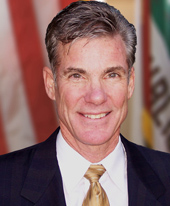 groundbreaking History/Social-Science Curriculum Framework.
groundbreaking History/Social-Science Curriculum Framework."I am proud California continues to lead the nation by teaching history-social science that is inclusive and recognizes the diversity of our great state and nation," he said. "Students will benefit enormously."
Torlakson said the instructional materials will give students a broader, deeper, and more accurate understanding of history and the social sciences, provide them with current research, and equip them with the critical thinking and research skills to make up their own minds about controversial issues.
"They update the teaching and learning of history and social science and convey important new information about the challenges and contributions made by individuals and ethnic groups, members of the LGBT communities, and people with disabilities," he said. "They recognize some individuals and groups who may not have been fully included in the past."
The new material followed guidelines established by the FAIR Education Act, which the Legislature approved in 2011 to require including the contributions of various groups in the history of California and the United States. California became the first state to specifically mandate study of Native Americans, African Americans, Mexican Americans, Asian Americans, Pacific Islanders, European Americans, lesbian, gay, bisexual, and transgender Americans, persons with disabilities, and members of other ethnic and cultural groups, with particular emphasis on portraying the role of these groups in contemporary society.
A total of 10 instructional programs were approved by the SBE for K–8 history and social sciences after eight hours of testimony from about 500 speakers. The new materials include:
- A new focus on civic engagement, which encourages and prepares students to be informed and involved in their local communities.
- A more complete picture of the accomplishments and challenges faced by LGBT individuals in American history and culture, such as astronaut Sally Ride and comedian Ellen DeGeneres.
- Expanded coverage of the farm labor movement that includes not only Cesar Chavez, but also the role of Filipinos and Filipino Civil Rights Leader Larry Itliong.
- Information on the Mexican Repatriation Program, which illegally deported thousands of Mexican-Americans in the 1930s, many of whom were U.S. citizens.
- A new emphasis on the diverse, multi-cultural heritage of California and the United States and the importance of our state and nation as a place of promise for all people, especially immigrants.
- More detail on African American history, specifically the institution of slavery. Through assigned readings, students can reflect on the meaning of slavery both as a legal and economic institution and an extreme violation of human rights.
- Additional perspective on the plight of Native Americans in California’s missions, focusing on diseases from which Natives did not have immunity, hardships of forced labor, and separation from traditional ways of life.
He also thanked members of the public who participated. "We welcome your passion, your commitment, your dedication, and your participation," he said. "Your involvement is a real-life example of the kind of civic engagement we want to encourage among all our students."
Approval of the instructional materials is one of the final steps in conveying the updated information to students in the classroom.
The process starts with the adoption of standards, which define what students should know and be able to do in each grade level. Next comes the adoption of the curriculum framework, which guides the teaching of the content, and finally the development of the instructional materials that were approved today.
The process leading to the approval of the instructional materials was thorough. After the SBE approved the History/Social Science Framework in July 2016, it appointed 99 instructional material reviewers, mostly classroom teachers, and 21 content review experts, including historians, to review materials and make recommendations about whether they reflected the History/Social Science Curriculum Framework.
The reviewers then made their recommendations to the Instructional Quality Commission (IQC), which advises the SBE. Next the IQC solicited comments from the public and heard from 140 speakers during its two-day meeting in September. Based on the comments, testimony, and a review with experts, the IQC required some publishers to make some changes in their instructional materials, and made its recommendations.
Districts can choose to purchase the instructional materials approved by the SBE, but they can also choose other materials, if those materials teach the content standards and reflect the History/Social Science Curriculum Framework.
More information on the 2017 History-Social Science Adoption of K-8 Instructional Materials process can be found within the California State Board of Education November 2017 Agenda (DOC).
Source: CDE








